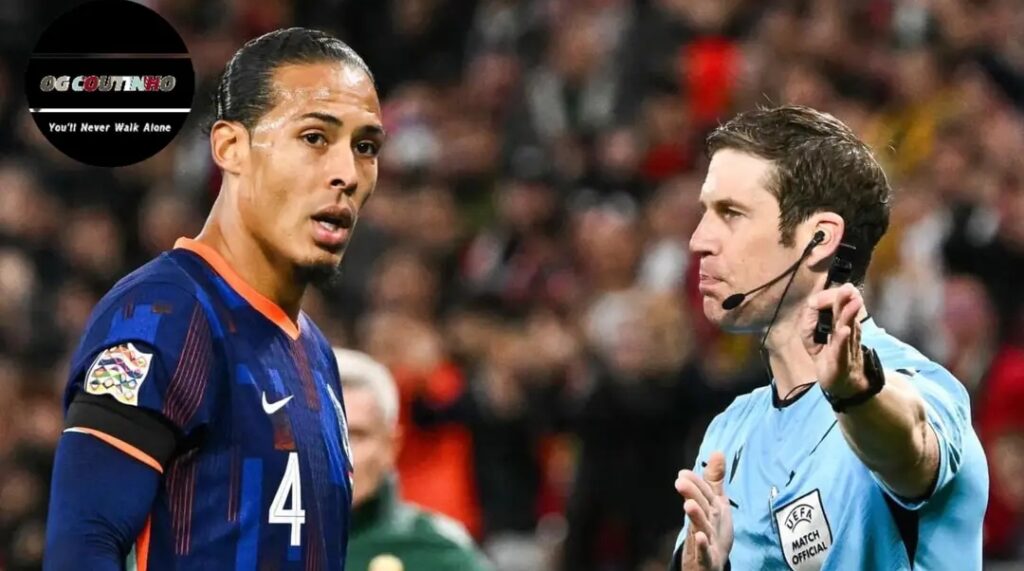Netherlands coach Ronald Koeman has made the strategic decision not to call up a replacement for his suspended captain, Virgil van Dijk, ahead of the critical Nations League clash against Germany on Monday. This decision comes in the wake of Van Dijk’s dismissal during the Netherlands’ 1-1 draw with Hungary, where the towering defender received two yellow cards in rapid succession, leaving the Dutch without their leader for the pivotal upcoming match.
Van Dijk’s sending-off was particularly controversial. The first yellow card, issued for dissent after he protested a foul on Donyell Malen, raised eyebrows, especially given Van Dijk’s role as captain. The second card, a more straightforward booking for a foul, compounded the team’s difficulties. The Dutch were already battling for control of the game, and Van Dijk’s dismissal in such a crucial moment could have easily derailed their efforts. However, Koeman, while expressing his confusion over the first yellow card, accepted the referee’s decision on the second. “I thought captains were allowed to speak to the referee,” Koeman remarked, clearly frustrated with how the situation unfolded. He further added that the challenge on Malen should have resulted in a red card for the Hungarian player, not a yellow for his captain.
Despite the setback, Koeman made it clear that he would not be calling in a replacement for Van Dijk ahead of the Germany match. This decision is significant, as Germany currently lead Group A3 in the Nations League with seven points, while the Netherlands trail by two. A win would propel Koeman’s side to the top of the group, but a loss could see them fall five points behind with only two games left to play, making their chances of progression much more difficult. Koeman’s trust in his existing squad suggests he believes they have the depth and quality to handle the pressure, even without their captain.
Reflecting on the draw against Hungary, Koeman remained upbeat, despite the circumstances. Denzel Dumfries’ late equalizer provided a much-needed boost for the team, who had to dig deep after Van Dijk’s departure. Koeman praised his team’s resilience, pointing out that they “didn’t give up, defended well, and left with a fair result.” The coach’s assessment of the game as a “reasonable feeling” demonstrates his belief that the Dutch can bounce back, even in the face of adversity.
Looking ahead to the Germany match, the stakes could not be higher. The Dutch know that a victory would completely shift the momentum in their favor, while a defeat could leave them with a mountain to climb in the final stages of the group. Koeman’s decision to stick with his current squad may signal his faith in the younger players to step up in Van Dijk’s absence. It also underscores his confidence in his team’s ability to maintain their focus and continue performing at a high level despite the suspension of such an influential figure.
As the Dutch prepare to face their longtime rivals, the pressure will be immense. However, if they can channel the same resilience and determination that Koeman admired against Hungary, they stand a good chance of securing a positive result. The absence of Van Dijk will undoubtedly be felt, but the team’s collective strength and tactical discipline may be enough to overcome the challenge ahead.
Koeman’s leadership will be crucial in guiding his squad through this critical phase of the Nations League campaign. With Van Dijk watching from the sidelines, it will fall to other senior players to step up and fill the leadership void. The match against Germany will serve as a true test of the Netherlands’ depth, determination, and ability to navigate difficult situations without their captain a
t the helm.
